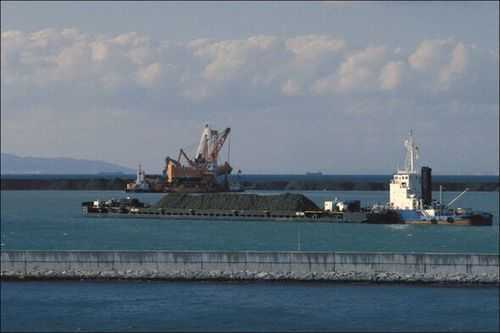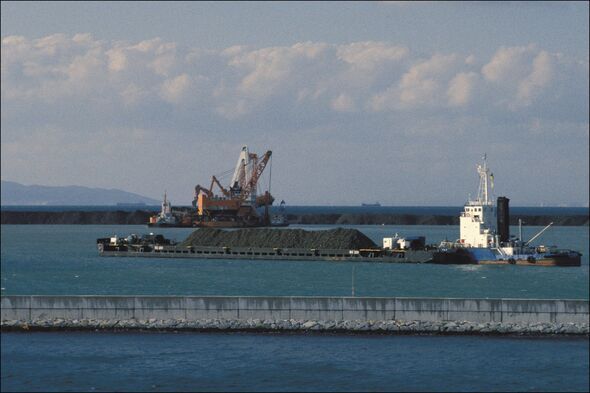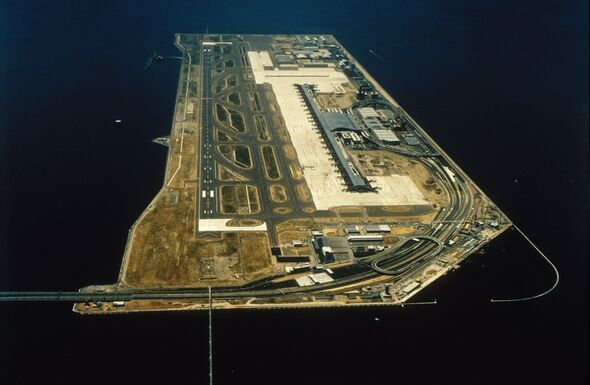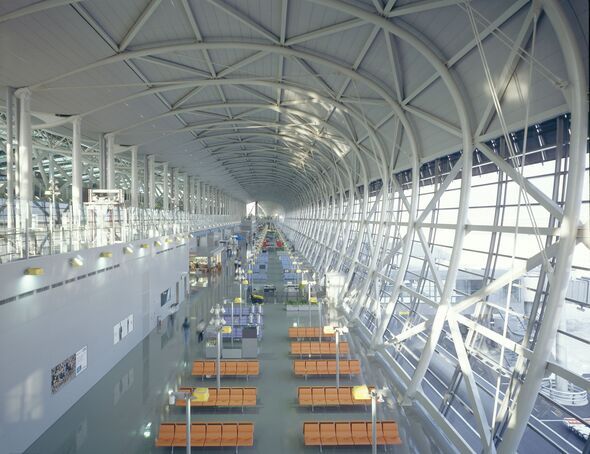

Kansai International Airport (KIX), located near Osaka, , is an engineering marvel and one of the world's most notable air hubs, built at the cost of a whooping £16.7billion.
It is built entirely on an artificial island in Osaka Bay and serves as a major international gateway to the Kansai region, which includes cities like Osaka, Kyoto, and Kobe.
The airport was built on a man-made island measuring about 4 kilometres (2.5 miles) long and 2.5 kilometres (1.6 miles) wide.
It opened in 1994 after six years of construction, which involved creating the island and building the terminal and runways.
In September 1998, the airport survived a with wind speeds over 60m per seconds. In September 2018, however, the airport was hit by typhoon Jebi.

The airport had to pause operations after seawater surges inundated the island. Runaways were hit and the water reached up to the engines of some aircraft.
Despite the impact the natural disaster had on the airport, within days it resumed partial operations.
The airport was constructed to withstand earthquakes and typhoons, common in the region. Engineers incorporated advanced seismic and wave-resistance technologies.

However, the airport is also withstanding another challenge, as the island on which it was built is sinking due to the soft clay seabed. This issue, anticipated during planning, is managed by ongoing adjustments and reinforcements.
The airport's runways and taxiways are periodically raised and reinforced. Protective measures, such as seawalls, have been enhanced to guard against flooding exacerbated by subsidence.
The rate of sinking has slowed significantly since the airport's construction, thanks to engineering interventions and natural stabilisation. However, it remains a long-term challenge.